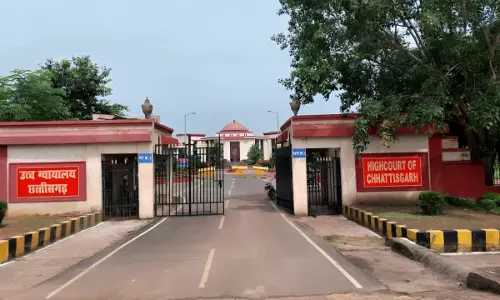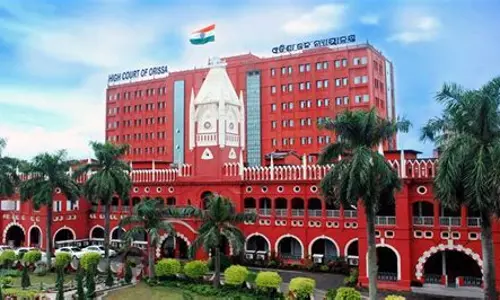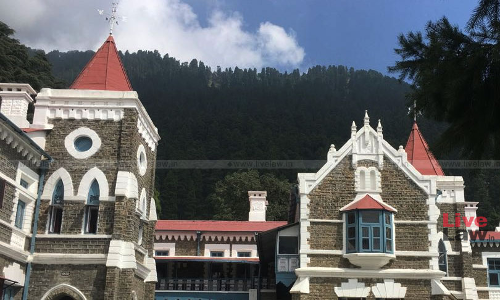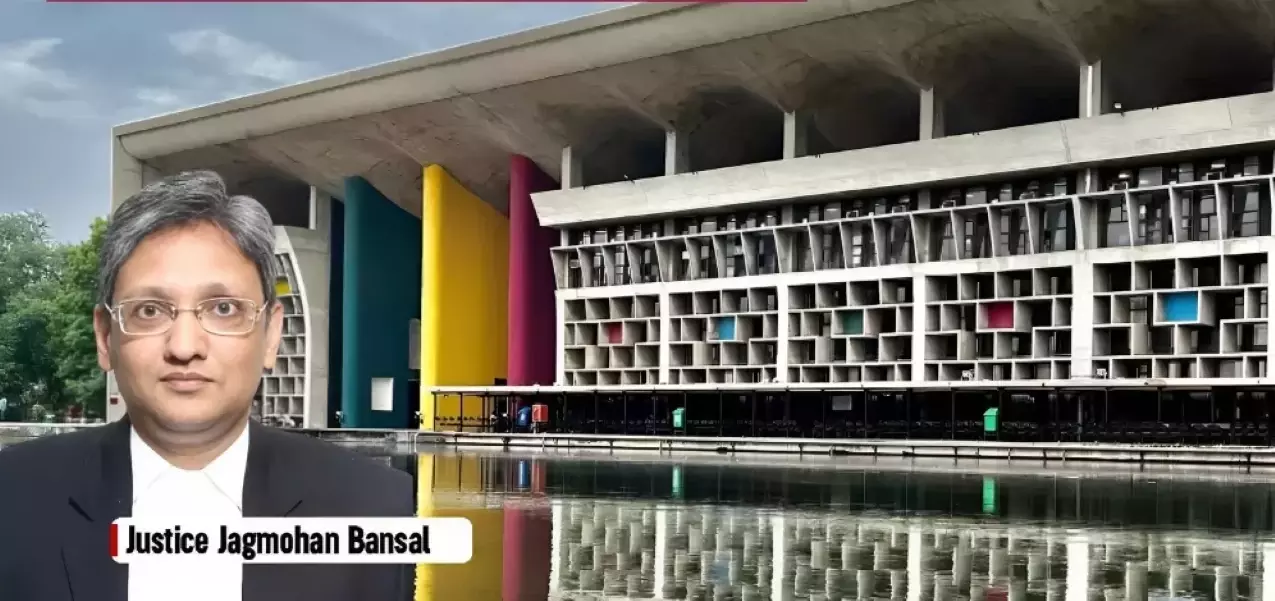Arbitration
Termination Of Mandate Of Arbitral Tribunal Results In Waste Of Time, Resources And Money, Court Allowed Petition U/S 29A (4) And (5) Of Arbitration Act: Delhi High Court
The Delhi High Court Bench of Justice Jasmeet Singh has held that the parties and the Arbitral Tribunal have invested a lot of time, effort and energy in the arbitral proceedings. The essence of the Arbitration and Conciliation Act, 1996 is a litigant-centric process to expedite the disposal of cases and reduce the cost of litigation. Also, the said delay of four and a half months...
Restraining Party From Participating In Any Tender Process U/S 9 of Arbitration Act Will Actually Thwart Competition: Delhi High Court
The Delhi High Court Bench of Chief Justice Subramonium Prasad has held that if the respondent is denied participating in any tender process and ultimately, in the arbitration proceedings and then in the award, it is held that the claim of the petitioner is to be rejected, then irreparable loss will be caused to the respondent. The court held that restraining the respondent...
Memorandum Of Family Settlement Did Not Require Registration: Delhi High Court Dismisses Appeal U/S 34 Of Arbitration Act
The Delhi High Court Bench of Justice Rekha Palli and Justice Saurabh Banerjee has held that the Single Judge has, without interfering with the factual findings arrived at by the learned Arbitrator, correctly applied the settled legal position to the MFS, by holding that the same being a record of prior oral partition of the properties between all the sons of late Mr. Amarnath Bajaj,...
Sufficiency Of Reasons Over Number Of Days Is Considered While Determining Plea Of Condonation Of Delay U/S 37(1)(2) Of Arbitration Act: Delhi HC
The Delhi High Court Bench of Justice Rekha Palli and Justice Saurabh Banerjee held that the appellant failed to demonstrate any plausible reasons for the delay caused in filing the present appeal. Also, there was not any exceptional circumstance(s) which precluded the appellant from filing the present appeal during the prescribed statutory period. The same is of vital importance as it...
S. 33 Arbitration Act | Clarification On Award Can Be Issued Even After Arbitral Tribunal Becomes Functus Officio : Supreme Court
The Supreme Court observed that although the Arbitral Tribunal becomes functus officio after passing an award, it would still retain the limited jurisdiction to clarify or correct errors in an award under Section 33 of the Arbitration and Conciliation Act, 1996 (Arbitration Act). The bench comprising Justices Abhay S. Oka and Ujjal Bhuyan dismissed the appeal filed against the Delhi High...
If Remedy For Cause Of Action Falls Within Scope Of Arbitration Agreement, Counter Party Cannot Be Compelled To Defend It In A Suit: Delhi HC
The Delhi High Court Bench of Acting Chief Justice Vibhu Bakhru and Justice Tushar Rao Gedela held that the scope of examination in an application under Section 8 of the Act is limited to prima facie examining the validity and existence of the arbitration agreement. Once it is accepted that a valid arbitration agreement exists between the parties, the court is necessarily required...
Arbitration Weekly Round Up [9th December To 15th December 2024]
Supreme Court S. 14 Limitation Act Applicable To Proceedings Under Arbitration & Conciliation Act : Supreme Court Case : Kirpal Singh Vs Government Of India Citation : 2024 LiveLaw (SC) 970 The Supreme Court has held that Section 14 of the Limitation Act, 1963 is applicable to the Arbitration and Conciliation Act, 1996. Section 14 of the Limitation Act provides...
Arbitration Can't Be 'Optional' When Agreement Provides Arbitration Clause : Supreme Court
The Supreme Court held that there cannot be an 'optional' arbitration, where parties are required to mutually agree to invoke the arbitration clause.Setting aside the MP High Court's decision, the Court said that there is nothing like 'optional arbitration' that could be invoked after both parties mutually agree to invoke the arbitration clause. According to the Court, arbitration is...
Findings Of Arbitrator U/S 34 Of Arbitration Act Cannot Be Scrutinised As If Court Is Sitting In Appeal: Chhattisgarh High Court
The Chhattisgarh High Court bench of Justices Smt. Rajani Dubey and Shri Bibhu Datta Guru has held that findings of the Arbitrator cannot be scrutinised under section 34 of the Arbitration Act as if the court is sitting in appeal. Brief Facts The claimant is a partnership firm and registered contractor with South Eastern Coalfields Ltd. (SECL). The claimant was awarded a contract...
Dispute Related To Infringement Of Copyright Is Arbitrable, Arbitrator Can Be Appointed U/S 11 Of Arbitration Act: Orissa High Court
The Orissa High Court bench of Chief Justice Chakradhari Sharan Singh has held that dispute related to infringement of copyright is arbitrable for which arbitrator can be appointed by the court under section 11 of the Arbitration Act. Brief Facts The present application has been filed under section 11(6) of the Arbitration Act, seeking appointment of an Arbitrator to resolve...
On Recusal Of Arbitrator Appointed By Court U/S 11 Of Arbitration Act, Substitute Arbitrator Can Be Appointed U/S 15(2): Uttarakhand HC
The Uttarakhand High Court bench of Acting Chief Justice Manoj Kumar Tiwari has held that on recusal of previously appointed Arbitrator appointed by the court under section 11 of the Arbitration Act , a substitute Arbitrator can be appointed by the court under section 15(2) of the Arbitration Act. Brief Facts The present application under section 11 read with section 15 of...
Specific Exclusion Clause In Agreement Renders Dispute Non-Arbitrable: Punjab & Haryana High Court
The Punjab and Haryana High Court bench of Justice Jagmohan Bansal has held that when there is a specific exclusion clause in the agreement, the matter shall not be referred to Arbitration. Brief Facts The applicant filed this application under section 11 of the Arbitration Act, seeking appointment of the Arbitrator. The present application was filed on the basis of an...



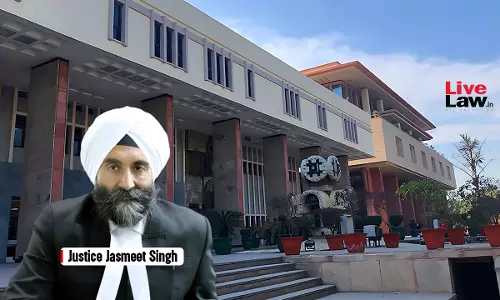
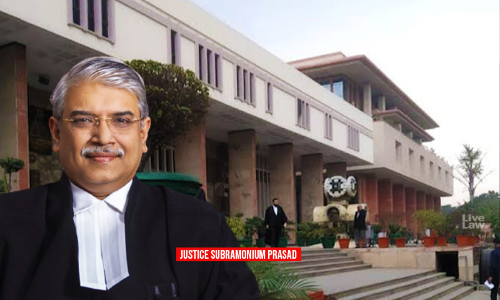
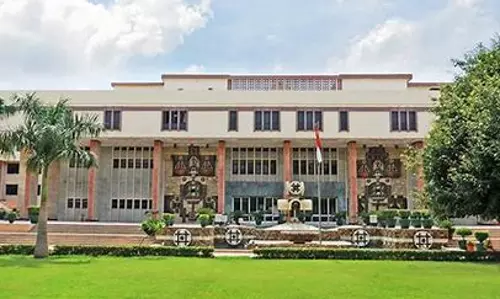
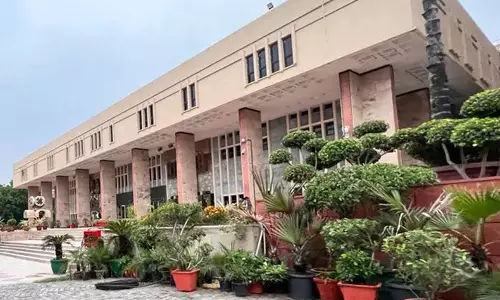
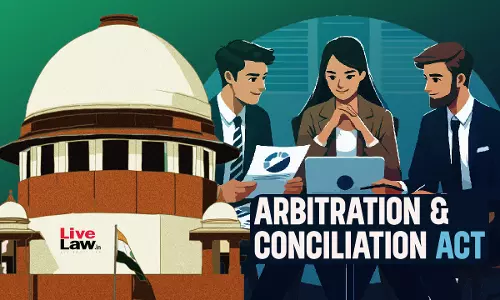
![Arbitration Weekly Round Up [9th December To 15th December 2024] Arbitration Weekly Round Up [9th December To 15th December 2024]](https://www.livelaw.in/h-upload/2024/05/24/500x300_541379-weekly-round-up-arbitration.webp)
